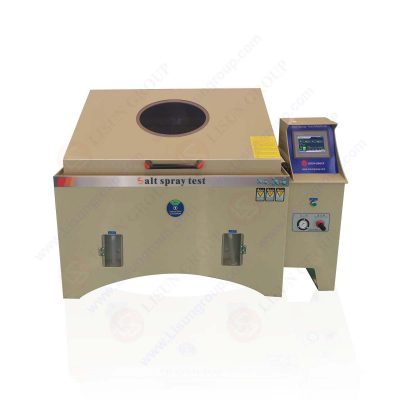Salt spray test chambers is that your fasteners are put in, you rely on their endurance and want them to remain serviceable at all times. When it comes to corrosion testing, a salt spray test is a technique that employs high-salinity settings to determine the corrosion resistance of items, paints, and coatings over a prolonged period. A salt spray tester does this test.
Tests for corrosion resistance of coatings and materials used in manufacturing items such as fasteners are carried out using salt sprays. When salt spray testing is carried out, the layer is subjected to an accelerated corrosive assault to better forecast how effectively it will protect the metal.
When comparing predicted and actual corrosion resistance, salt spray testing is often performed to provide fast comparisons. In actuality, there is only a slight association between the length of the coating in the test and the actual predicted life of the layer in the real world. Because corrosion is a complex process involving numerous external elements, it is not a straightforward process to explain.
Therefore, when applied to samples to generate a pass-or-fail grade and compare the results to expectations, salt spray testing is the most effective technique. This is often done as part of a quality control processor to determine the success of a specific manufacturing procedure.
Because it is rapid, repeatable, and reasonably affordable, salt spray testing has long been the de facto corrosion testing technique of choice. Since 1939, this kind of globally-recognized test has been in existence. The neutral salt spray test is conducted by ISO 9227:2012, the most recent international test standard, and the results are generally presented as a ‘grade’ by other applicable standards.

YWX/Q-010_Salt Spray Test Machine
In a confined testing room, salt spray experiments are carried out. A spray nozzle is utilized to apply a saltwater solution to a sample. To simulate a corrosive experiment, this intense saltwater fog is created and exploited. LISUN has the best salt spray tester on the market.
The appearance of oxides is examined over a period that varies depending on the corrosion resistance. The more prolonged it takes for the oxides to form in a product, the more resistant it is. In the case of special coatings, testing intervals might range from 24 to 1,000 hours or more.
Testing for the salt spray is usually carried out in line with the ASTM B117 testing protocol. It takes between 8 and 3,000 hours for the tests to be completed, and they are conducted in a 5 percent sodium chloride solution with a pH of between 6.5 and 7.2. Samples are put in a confined room and subjected to a thick mental fog, which replicates the conditions of a severely corrosive environment.
The salt spray test is one of several corrosion tests available, and it is widely used, despite some dispute about how well it replicates real-world circumstances. In the case of an application that does not entail exposure to salt compounds, many people wonder whether the test is still suitable.
Lisun Instruments Limited was found by LISUN GROUP in 2003. LISUN quality system has been strictly certified by ISO9001:2015. As a CIE Membership, LISUN products are designed based on CIE, IEC and other international or national standards. All products passed CE certificate and authenticated by the third party lab.
Our main products are Goniophotometer, Integrating Sphere, Spectroradiometer, Surge Generator, ESD Simulator Guns, EMI Receiver, EMC Test Equipment, Electrical Safety Tester, Environmental Chamber, Temperature Chamber, Climate Chamber, Thermal Chamber, Salt Spray Test, Dust Test Chamber, Waterproof Test, RoHS Test (EDXRF), Glow Wire Test and Needle Flame Test.
Please feel free to contact us if you need any support.
Tech Dep: Service@Lisungroup.com, Cell/WhatsApp:+8615317907381
Sales Dep: Sales@Lisungroup.com, Cell/WhatsApp:+8618117273997
Your email address will not be published. Required fields are marked *